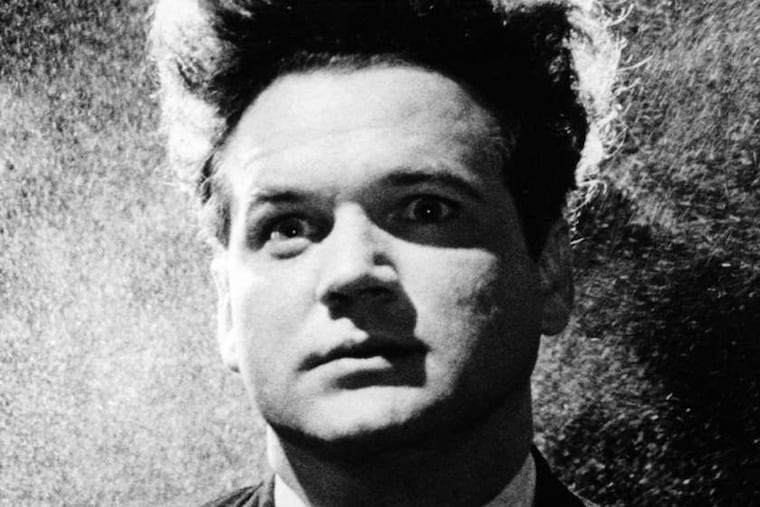Jawnts: 'Eraserhead' still a unique Philly story
Art that was once audacious and bewildering often becomes a victim of its own success as the decades wear on. What first made it unique becomes rote, replicated ad nauseam by a hundred meager tributes.

Art that was once audacious and bewildering often becomes a victim of its own success as the decades wear on. What first made it unique becomes rote, replicated ad nauseam by a hundred meager tributes.
David Lynch's Eraserhead, on the other hand, still feels as unmercifully original as ever.
In September, the Philadelphia Film Society will show a retrospective of Lynch's work at the Prince Music Theater, and offer a (sold-out) Q&A with the man himself Sept. 10. But this week, his Philly-inspired debut hits the big screen again. Prepare to be discomfited.
Eraserhead is about a towering-haired factory worker named Henry Spencer who goes to dinner to meet his girlfriend's family. There he is confronted with the very last thing a paralyzingly awkward young man wants to hear from his girlfriend's mother - "Did you have sexual intercourse with my daughter?" - followed by the last thing anyone would want to hear about a girlfriend's surprise childbirth - "Mother, they're still not sure if it is a baby!"
The film to this point mostly features Spencer shuffling, with Chaplinesque gait, through the clattering industrial hulks of his neighborhood. (Eraserhead is William Blake's "dark, satanic mills" given cinematic flesh.) The rest of the movie cannot be described in narrative terms. Suffice it to say, it will put you off child-rearing for a while.
The aural effects of Eraserhead are pitched perfectly to the tune of decay and grime. The dialogue is sparse, but the air is filled by skittering clanks, fiercely hissing steam, and mysterious, shuddering bangs. As Spencer attempts to make small talk with his girlfriend's mother, a verminous din competes for the listener's eardrum. It is revealed, eventually, to be a dog suckling her young at an uncannily high volume. It may be the only entirely grotesque depiction of puppies in the history of celluloid.
The movie was inspired by Lynch's time in Callowhill or, as fans have affectionately named it, the "Eraserhood" - north of Vine, south of Spring Garden, east of Broad, west of Ninth. The area is now studded with bars and loft apartments, but the defining feel is still postindustrial gloom. "I was in this factory world, and I could imagine the streets and the little diners and hardly anybody there from the little worker houses," Lynch told the music website Pitchwork in 2012.
By all accounts, Lynch was thoroughly freaked out by the neighborhood, and the city more generally. "He was terrified, but at the same time he loved it," his ex-wife, Peggy Reavey, told Philadelphia Weekly. The movie oozes his unease and fear.
Lynch enrolled at the Pennsylvania Academy of the Fine Arts and lived in a small apartment on 13th and Wood (kitty-corner to the city morgue) and later in Fairmount, where he witnessed violence between white and black neighborhoods and generally avoided going outdoors.
But the eldritch ambience of Eraserhead is just as much a Philadelphia movie as, say, Rocky. A postindustrial, poverty-wracked urban landscape tends to be home to a lot of violent, gritty, bizarre, and too-vacant spaces. Eraserhead is obsessed with that aspect of Philly and, even though it wasn't filmed here, it captures a part of the city's truth, if not a remotely pleasant one.
Jawnts: ERASERHEAD
Prince Music Theater, 1412 Chestnut St.
Wednesday at 7 p.m.
Tickets are $7
EndText